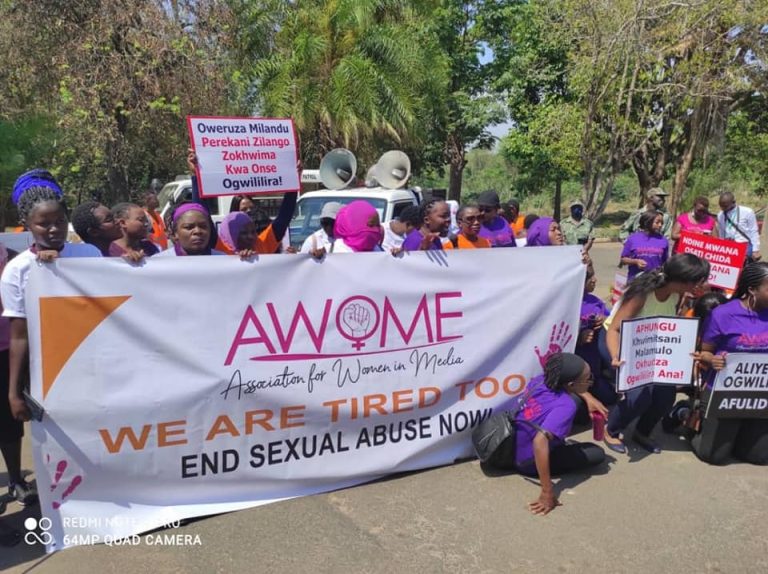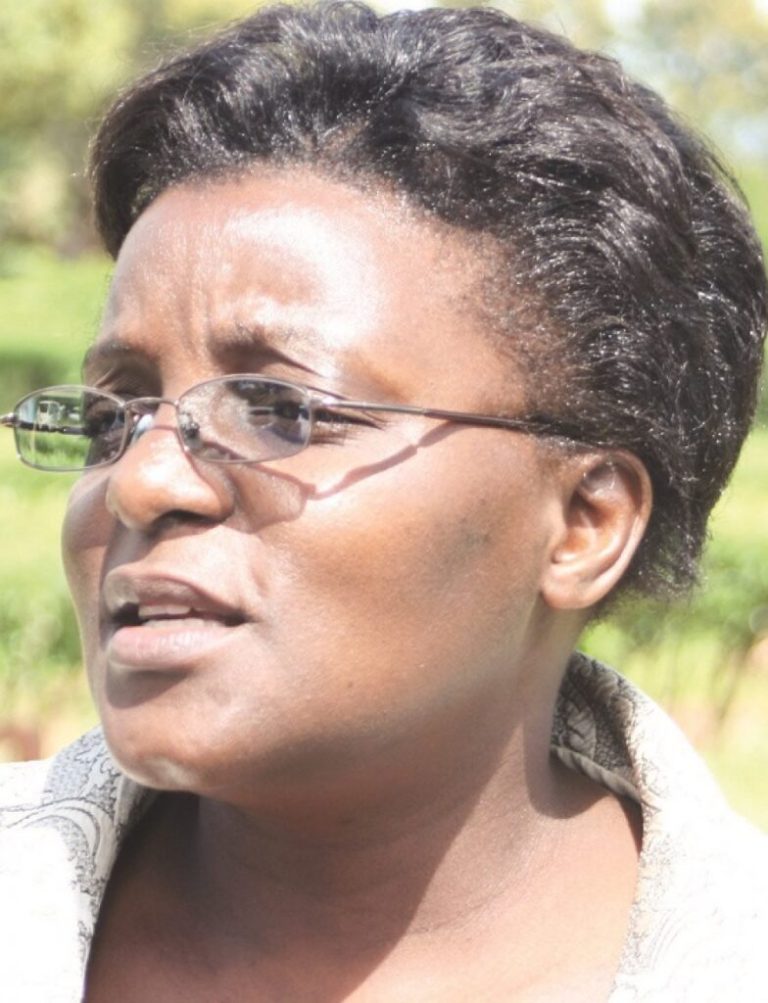BY JOSEPHINE CHINELE
Some female employees working for one of Malawi’s top tobacco exporting companies, Alliance One Tobacco (Malawi) Limited, claim they have suffered sexual harassment plus mental and emotional abuse for years amid a workforce culture that promotes silence.
Some alleged victims of the abuse have spoken to the Platform for Investigative Journalism (PIJ-Malawi) and also reported the matter to the Malawi Human Rights Commission (MHRC).
Two women who exclusively spoke to PIJ opted for anonymity, but said they decided to open up after growing increasingly disillusioned that there were no internal mechanisms to protect workers.
One of the women, who provided information, decided to withdraw her testimony given to PIJ amid fear of reprisals. While another said she had reported the harassment to management, but saw no action taken against a senior manager at the centre of the allegations.
Alliance One Tobacco is an international tobacco-buying company operating in Africa, Asia, Europe, America, and the Middle East, claiming a high level of integrity in its operations.
We have learnt that some male senior officers use their influence to make inappropriate physical contact towards female employees, use inappropriate language and demand sex in exchange for favours. The female officers allege that, when turned down, they are threatened with dismissal, and withholding of employment rewards, and they continue to be bullied in this manner.
PIJ could not obtain direct evidence of the alleged senior managers demanding sex or other favours, but we have some WhatsApp message screenshots purportedly showing a conversation between one of the senior managers and a junior female worker that could construe inappropriate language and sexual harassment.
Some conversations between female employees and their male supervisors took place at odd hours.
‘No Woman Says No to Me’
“He has been pursuing to have sex with me despite knowing my marital status. Even though I have been turning him down, he doesn’t relent. He claims no woman says no to him, and he is well known around here for this kind of thing,” disclosed one female employee (name withheld).
Another female employee disclosed that her male supervisor has been calling and texting her during odd hours, “He has told me he is horny many times… He has been challenged that he will have sex with me someday. I have been left out in some assignments where I would benefit from allowances because I have refused to ‘comply’ with his demands.”
Another female employee added: “Our organisation has an open door policy, but each time you go to some offices, they ask you to close the door, so they could make sexual advances towards you.”
We have learnt that, much as other women turn down these advances, others have been complying and in turn getting ‘personal’ favours outside the organisation such as having the men buying them cars and even houses among others.
Open Harassment
Two of the complaints we received focused on the company’s Leaf Sales Manager, Jackie Basikoro.
Some employees alleged in interviews witnessed him indecently touching female employees in his department and making ‘sexual’ related remarks towards them.
“He is a family man but likes to flirt and sleep around with other women around here,” claims an employee who asked for anonymity for fear of repercussions. Another one said, “He is a highly influential person around here and no one can do anything even if these things are reported. Women have tried to report before, but the issues just disappear.”
The employees claim that at one end-of-year party, he (Basikoro) was noticed pursuing a female employee to have sex with him, but she was protected by fellow employees.
All the women victims we spoke to said they did not report to their organisation’s Human Resources Department or anyone formally for fear of losing their jobs. They claim to know of others before them who reported, but nothing happened.
“I know that if I report, he would squeeze me in one way or the other, to have me fired,” said one victim.
In the course of our investigations, we also established that some key employees were shielding the perpetrators within the organisation. Some women we spoke to even asked for the withdrawal of their harassment experiences in this story for fear of repercussions.
Denies claims
Basikoro denied having ever sexually harassed any female employee at his workplace.
“It’s the first time I’m hearing of this from you. I have no idea about this… Since these allegations are concerning women at my organisation, please contact my organisation because we have rules and regulations that we follow. If it was an issue concerning women outside our organisation, I would freely speak but on this, I can’t say anything because I may say something contrary to the company’s regulations. The company may answer better. They should have documents of the complainants or anything of that sort,” he said.
No Official Complaints
Alliance One Corporate Affairs Manager, Francoise Malila said the organisation is not aware of any alleged case of sexual harassment of its female employees.
“We have not received any complaints through the company-established reporting lines, including the hotline. The reporting lines (Hotline) are displayed on company notice boards all over the workplace,” she said.
She claims that all members of staff have ready access to the Terms and Conditions of Employment and the Code of Conduct which sets out grievance reporting guidelines, adding that the Compliance hotline contact details are prominently displayed on all notice boards located in all critical workstations.
Alliance One says:
- The company runs an orientation covering all employees at the start of the season. This is complemented by regular compliance-related, mandatory online courses to increase awareness of workplace ethics and compliance. They can also report issues anonymously using the hotline number, which is managed by the Corporate Ethics and Legal office in the USA, therefore, protecting the identity of the complainant–complaints are handled confidentially until such a time that it is determined that a report warrants further investigation.
- Company policy makes it abundantly clear that there is zero tolerance for reprisals by alleged perpetrators. The company maintains a position through its non-retaliation policy that there will be no repercussions for reports made in earnest.
- If reported, investigations will be carried out. In the event that it is ascertained that there could be a case to answer, a disciplinary hearing will be conducted in accordance with defined processes and procedures. Depending on the determination of the disciplinary enquiry, the company makes its decisions accordingly. If there is insufficient evidence the case will be dropped, however management will continue to monitor it as an ongoing concern, If there is sufficient evidence and depending on the servility of the malpractice a Serious warning or dismissal will follow. Disciplinary processes have appeal opportunities.
When there is a request by the complainant to remain anonymous, Malila explains, the company undertakes to protect the employee’s wish, “however this adds complexity to disciplinary procedures, as evidence and witnesses are not readily available for a fair hearing, and therefore we encourage our employees to speak out so that the matter can properly be dealt with.”
Afraid to Report
Although the female workers did not lodge the complaints with management, Malawi Human Rights Commission (MHRC) has confirmed that it has received complaints of sexual harassment from Alliance One.
“I can confirm that we have received this complaint, but it’s too early to give details on this at the moment,” MHRC Executive Secretary Habiba Osman said in an interview.
While the state-run body is still investigating the matter, Osman added she was not surprised however by the decision by the alleged victims not to report the matter to the company’s management, saying women who are victims of workplace sexual harassment are often afraid of repercussions and retaliations.
“Women are afraid of being fired. Many others are afraid of losing their marriages. If at church, they are afraid of being excommunicated or people would blame them for seducing the minister or priest in question,” she added.
Osman, however, said there is some improvement in reporting since the case involving former Malawi Broadcasting Corporation Director General, Aubrey Sumbuleta and after the Mota-Engil landmark judgement case. In the Mota case, the High Court ordered Mota-Engil to pay a sexual harassment employee K30 Million for their failure to protect her against sexual harassment in the workplace.
According to Osman, the commission has received over 60 workplace sexual harassment complaints in the last two years from public, private and informal sectors.
MHRC says between January 2021 and April 2022 it received 23 sexual harassment cases. 13 were recommended for closure and 12 are still running.
The organization audited 60 institutions on sexual harassment policy but not more than ten had Sexual Harassment policies as most of them use conditions of service, according to MHRC Gender Officer, Deborah Tambulasi.
Chairperson for the Non-Governmental Organisation Gender Coordination Network (NGO-GCN), Barbara Banda says much as the organisation is pleased with the improvement in case reporting attributed to many years of advocacy and capacity building, it is worried about the women that remain silent despite being sexually harassed.

“We are aware that some women or others in authority shield the perpetrators due to the dominant patriarchy syndrome, but this then becomes a big injustice. Those shielding such people automatically become accomplices to these acts,” she noted.
Banda disclosed that NGO-GCN has received 12 cases of sexual harassment in the past 12 months.
Why it can’t end
Sexual and Reproductive Justice Advocate, Dr Godfrey Kangaude observed that sexual harassment at the workplace is manifested in patriarchal society and this also works in fellow women fuelling the immorality by shielding the perpetrators.
“The victims opt to remain silent because there is a lot of victims blaming when it comes to sexual abuse, largely attributed to the deep-rooted patriarchal syndrome. When one reports, people begin to ask what they were wearing or where they were, among many other victim-blaming questions. There are no strong assuring mechanisms that they will be heard rather than be blamed.”
He added: “If there’s no such protection, they are afraid of reporting for fear of being fired, further harassed or suffering some consequences.”
Psychological Effects
Clinical Psychologist at Kamuzu University of Health Sciences (KUHES), Professor Chiwoza Bandawe says generally, unreported abuse affects a person’s mental well-being as there is tremendous amount of frustration that would lead to depression and anxiety because the distress experienced is not being vented out.
“As a result of that… a lot of anger and frustration that’s vented inwards against self could lead to amounts of self-blame and internalised anger which is known to lead to depression. There has to be a way that permits the people to have avenues that permit them to express their grievances,” he said.
Professor Bandawe also notes that sexual harassment victims may have been victimised (for reporting the vice) or remain silent because the wrongdoing perpetrators have the mindset that this is almost considered to be a cultural norm, “when in fact it’s not.”
“There is a need for a discussion to include and involve men who agree within their own discourse that women should be respected and that they aren’t objects. This attitude of objectification should be tackled and directly challenged by men that will respect that a woman is a human being and is not purely for the provision of sexual pleasure… “
“That discussion should be among men, where men are accountable to one another. Where it is agreed within the discussion among men that this is just absolutely not right. Much as these issues derive from uncertain cultural norms, sexual harassment is also a power game,” He elaborated.
Gender Equality Act
The gender Equality Act of 2013 says a person who has been subjected to sexual harassment require not to have exhausted internal sexual harassment procedures before prosecution of the offence can be commenced, or civil proceedings can be instituted.
Section 6 of the Act of 2013, among others, indicates that a person commits an act of sexual harassment if s/he engages in any form of unwanted verbal, non-verbal or physical conduct of a sexual nature in circumstances in which a reasonable person, having regard to all the circumstances, would have anticipated that the other person would be offended, humiliated or intimidated. The Act also states that a person who sexually harasses another commits an offence and is liable to a fine of up to K 1,000,000 and to five-year imprisonment.
Furthermore, the Act says employers need to protect employees against victimisation, retaliation for lodging grievances and false accusations.
“Organisations need to designate a person outside of line management whom a person who has been subjected to sexual harassment may approach for confidential advice and counselling,” reads the Act in part.
This story was produced by the Platform for Investigative Journalism (PIJ-Malawi), a non-profit centre for investigative journalism. If you are a victim or have witnessed sexual harassment, please report to the nearest police station or organisations that deal with abuse of women, such as the Malawi Human Rights Commission (MHRC).




.jpg)


